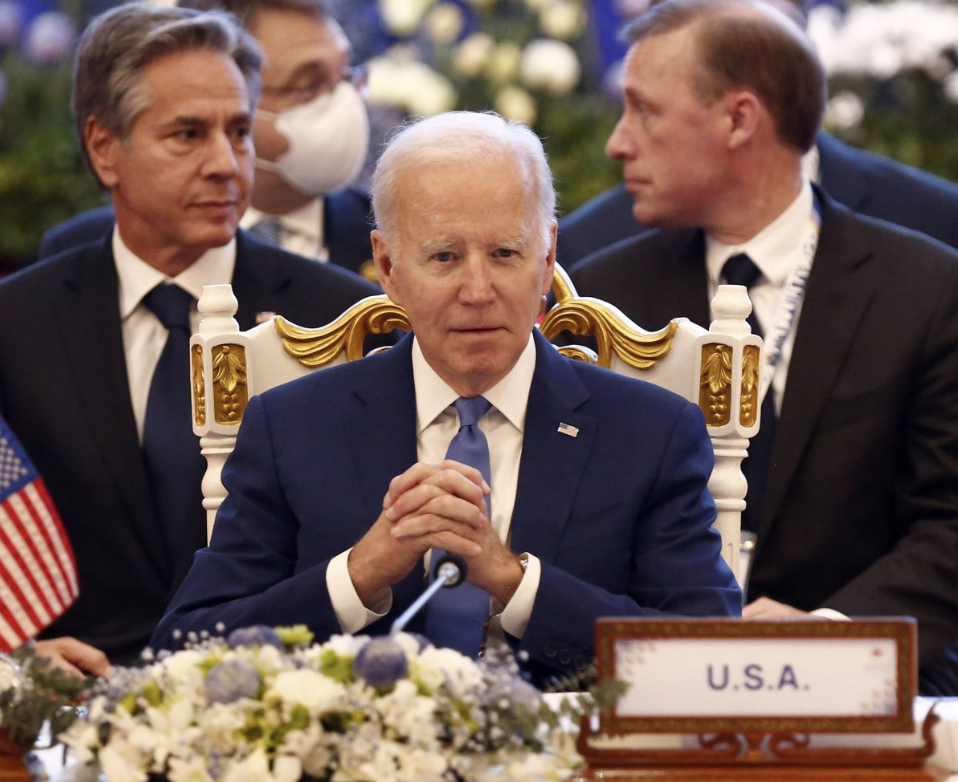US-ASEAN Tops Agenda as ASEAN Leaders Prepare to Meet
ASEAN leaders wave during the opening ceremony of the 10th ASEAN-U.S. Summit. Photo: Cindy Liu/Reuters
President Joe Biden met with the Association of Southeast Asian Nations (ASEAN) leaders on Nov. 12, marking the 45th year of U.S.-ASEAN cooperation and raising issues of U.S. support in the region amidst increasing intervention from China. During the meeting, President Biden announced the US-ASEAN Comprehensive Strategic Partnership, which aimed at tackling “the biggest issues of our time”. This comes ahead of a highly anticipated G20 meeting on Nov. 14 in Indonesia, where President Biden will meet with Chinese Premier Xi Jinping for the first time since the former took office.
With the partnership, President Biden looks to address a number of pertinent issues. This includes a commitment to “defend against the significant threats to rule based order and to threats to the rule of law, and to build an Indo-Pacific that’s free and open, stable and prosperous, resilient and secure.” Five new high-level dialogue processes have been launched to cover “health, transportation, women’s empowerment, environment and climate, and energy”.
ASEAN leaders have articulated their own vision for the region under the 2019 ASEAN Outlook on the Indo-Pacific, identifying the ASEAN Centrality as the key mechanism fostering regional cooperation. Through ASEAN-led initiatives such as the East Asia Summit, the regional bloc hopes to create “an Indo-Pacific region of dialogue and cooperation instead of rivalry… of development and prosperity for all”.
President Joe Biden is under scrutiny as the ASEAN conference. Photo: Kith Serey/UPI
In light of this, President Biden was under pressure to deliver on his past promises made to the region. During the U.S.-ASEAN Special Summit on May 13 in Washington D.C., President Biden declared a $50 million increase in commitment to ASEAN, because “the ASEAN centrality is the very heart of my administration’s strategy”. Currently, ASEAN enjoys close ties with the U.S. as a strategic partner, with the latter being ASEAN’s largest source of foreign direct investment.
However, the effectiveness of this alliance remains to be seen amidst fractures in the regional bloc’s diplomacy. ASEAN states have failed to present a united front on the issues of Myanmar’s political turmoil, with the country not being invited to this year’s summit after the Feb. 2021 political coup. China’s assertion of power in the South China Sea has also yet to be addressed with each country having complex individual ties with the U.S. and China.
Cambodia, the host for this year’s meeting and the 2022 ASEAN Chair, is one of the closest allies of China in the region, and maintains fraught relations with Vietnam and the Philippines, especially regarding questions of sovereignty in the South China Sea. As such, ASEAN as a whole must maintain a delicate balance of partnership between the two competing powers.
“We do not want to choose sides. ASEAN wants to work closely with both the U.S. and China,” said Kung Phoak, the Cambodian Secretary of State of the Ministry of Foreign Affairs and International Cooperation.


